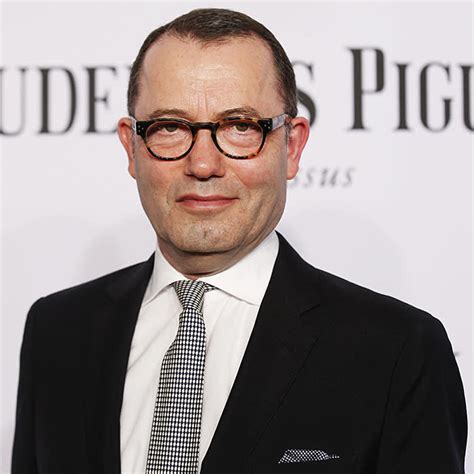A Quote by Howard Shore
Theater and film are essentially the same - just different kinds of storytelling.
Quote Topics
Related Quotes
Film is very much about capturing the essence of things - if you feel it, and you've got the right person shooting it, it'll come across. Theater's a different animal; it's physically different and requires a different discipline. In the theater, you're mining the same material, constantly honing the same thing, executing it and keeping it alive and fresh.
You have two kinds of shows on Broadway - revivals and the same kind of musicals over and over again, all spectacles. You get your tickets for 'The Lion King' a year in advance, and essentially a family comes as if to a picnic, and they pass on to their children the idea that that's what the theater is - a spectacular musical you see once a year, a stage version of a movie. It has nothing to do with theater at all. It has to do with seeing what is familiar. We live in a recycled culture.
I think film is a world of directors. Theater is a world of actors. Or, theater is for actors as cinema is for directors. I started in theater. Filming is as complete as directing film. In theater, you are there, you have a character, you have a play, you have a light, you have a set, you have an audience, and you're in control, and every night is different depending on you and the relationship with the other actors. It's as simple as that. So, you are given all the tools.
African films should be thought of as offering as many different points of view as the film of any other different continent. Nobody would say that French film is all European film, or Italian film is all European film. And in the same way that those places have different filmmakers that speak to different issues, all the countries in Africa have that too.
I love musicals but it's very, very different. It's really just a different form than serious drama, and has very different rules and a completely different set of characters and requirements and ambitions. It maybe shouldn't be as separate as it is, but it's got a different history. In terms of serious drama, I think you'd have to say that you could break it down essentially into the narrative realist tradition and experimental theater.
Normally my process is to sit in a room and read a script and talk about it and ask questions and just create a dialogue. That goes all the way through shooting. All kinds of thoughts and ideas can find their way in there. As long as you're all on - We're just all trying to tell the story so my job as a director is just to find out what this film wants to be based on, it's just words on a page at some point but then it just needs to go to some level of believable storytelling. I'm discovering the film as I make it, to some degree.







































